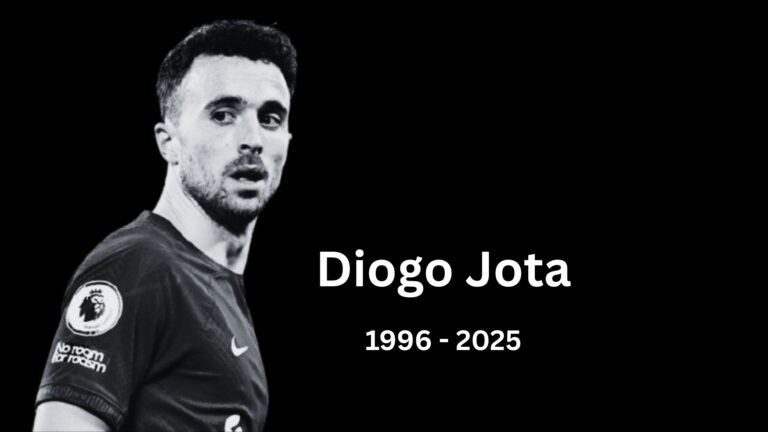
What is a Toxic Relationship?
A toxic relationship is one that is characterized by harmful behaviors and dynamics that negatively affect one or both partners’ emotional and mental health. The meaning of toxic relationships revolves around the idea that the connection between individuals can cause more harm than good, leading to feelings of anxiety, depression, and overall dissatisfaction. Such relationships often lack the essential elements of support, trust, and mutual respect that are fundamental for healthy interactions.
One of the most crucial features of a toxic relationship is manipulation. This can manifest in various forms, such as emotional blackmail or guilt-tripping. For instance, one partner may use guilt to control the other’s choices, leaving them feeling responsible for the other person’s happiness or decisions. This type of controlling behavior can create an imbalance, often leading to one partner feeling trapped and the other feeling powerful.
Disrespect is another hallmark of a toxic relationship. This could be overt, such as belittling comments or lack of appreciation, or more subtle, like disregarding boundaries and not valuing the other person’s opinions. When mutual respect is lacking, it undermines the foundation that a healthy relationship is built upon, causing individuals to feel undervalued and unheard.
Additionally, a toxic relationship typically entails a significant lack of support. A partner in a healthy relationship should help uplift and encourage their significant other. However, in a toxic dynamic, one partner may feel that their aspirations and emotions are dismissed or overshadowed by the other’s needs. This imbalance in support can foster immense feelings of isolation and unhelpfulness, making it difficult for the affected partner to thrive.
Why Understanding Toxic Relationships Matters
Recognizing the meaning of toxic relationship dynamics is vital for both personal well-being and the cultivation of healthy interpersonal connections. Often, individuals find themselves entrenched in toxic environments without any awareness of the signs. According to various studies, nearly 60% of people have reported being in a relationship they later deemed unhealthy or toxic, highlighting the widespread nature of this issue. This statistic not only emphasizes the prevalence of toxic relationships but also underscores the necessity for awareness and education on the topic.
Understanding the characteristics of toxic relationships is essential because they can lead to profound emotional stress and impact an individual’s mental health. People might initially perceive certain behaviors as minor annoyances or quirks. For example, an individual might laugh off a partner’s controlling tendencies, thinking it stems from love or concern. However, as these behaviors persist, they can chip away at one’s self-esteem and create a cycle of dependency and distress. Recognizing these patterns early on can prevent further emotional damage.
On a lighter note, humor can often serve as a coping mechanism. Consider the quote by comedian Ellen DeGeneres, “I have an everyday religion that works for me. It’s called love and kindness.” This reminds us that relationships should primarily be founded on mutual respect rather than manipulation or negativity. Recognizing the meaning of toxic relationships does not negate the humorous aspects of human connection; it enriches our understanding and appreciation of what a healthy relationship should entail.
Ultimately, by cultivating awareness and understanding of toxic relationship behaviors, individuals can protect both their emotional health and necessary boundaries. It is important to foster relationships that contribute positively to our lives, reinforcing the importance of recognizing, addressing, and discussing toxic dynamics as they arise.
Common Signs of a Toxic Relationship

Toxic relationships can often go unnoticed until the detrimental effects become apparent. Recognizing the warning signs is essential for preserving mental well-being and fostering healthier connections. Here are some common indicators that may signify a toxic relationship:
- Constant Negativity: This includes a pervasive atmosphere of pessimism where one partner frequently criticizes or belittles the other. For example, one individual described their experience saying, “No matter what I did, it was never enough. I felt defeated every single day.” This negativity can erode self-esteem and generate a sense of hopelessness.
- Jealousy: A toxic relationship often features possessiveness that can be confused with passion. One person remarked, “My partner would get furious if I spent time with friends, insisting they weren’t good for me.” This form of jealousy can lead to isolation and control, marking a significant red flag in the relationship dynamic.
- Emotional Hijacking: In this situation, one partner may react to conflicts with extreme emotional outbursts. A user review shared: “Every time we had a disagreement, it felt like our conversations turned into a battleground. I could never express my feelings without triggering a meltdown.” This behavior not only stifles open communication but may also instill fear in the other partner.
- Gaslighting: This manipulation tactic confuses the victim and makes them question their perceptions. One individual explained, “I began to doubt my memories because my partner would insist things didn’t happen the way I remembered.” Over time, gaslighting can severely impact one’s sense of reality.
- Lack of Support: A partner should ideally uplift the other, but in toxic arrangements, support may be scarce. As one person recounted, “Whenever I had a success, my partner would dismiss it as luck. It felt like I was always alone in my achievements.” This lack of support can inhibit personal growth and happiness.
Identifying these signs is the first step toward understanding the meaning of toxic relationships and addressing the underlying issues to foster healthier interactions.
The Impact of Toxic Relationships on Mental Health
Toxic relationships can have a profound effect on a person’s mental health, manifesting in various emotional and psychological symptoms. Such relationships are characterized by dysfunction, where one or both individuals engage in hurtful behaviors, leading to increased stress, anxiety, and depression. Research has indicated that individuals in toxic associations often experience diminished self-esteem and a persistent sense of hopelessness, which can perpetuate the cycle of mental distress.
Experts assert that the emotional consequences of being involved in a toxic relationship can be as severe as those found in physical abuse cases. According to a study published in the Journal of American College Health, students who reported being in unhealthy relationships also displayed symptoms of anxiety and depression at significantly higher rates than their peers. When people find themselves consistently worried about their partner’s reactions or feel the need to alter their behavior to maintain harmony, it creates a chronic state of fear that impacts mental well-being.
Furthermore, prolonged exposure to toxic dynamics can foster unhealthy patterns of behavior, making it difficult for individuals to establish boundaries and engage in healthy interactions. Those who are constantly subjected to criticism or gaslighting, for instance, may internalize these negative messages, leading to self-doubt and emotional withdrawal. This withdrawal can escalate, leading to isolation from friends and family, which only compounds the mental health challenges faced.
Overall, the impact of toxic relationships on mental health is significant, with potential long-term effects if left unaddressed. Building awareness around the meaning of toxic relationships and recognizing these unhealthy patterns can be critical first steps in protecting one’s mental health and establishing healthier interpersonal dynamics. Seeking professional help or support from trusted individuals can facilitate recovery and promote emotional resilience.
Breaking Free from Toxic Relationships
Escaping the confines of a toxic relationship can feel overwhelming, but it is essential for your mental and emotional well-being. Recognizing the signs is the first critical step. This includes consistent feelings of anxiety, manipulation, or emotional distress when you are with the other person. Acknowledging these feelings is key as it brings clarity to the situation, allowing you to understand the true meaning of a toxic relationship.
Once you’ve identified the toxicity, it’s essential to set boundaries. Begin by communicating your feelings honestly and assertively. Let the other person know what behaviors are unacceptable. This might feel daunting, but assertiveness is vital in establishing your self-worth and protecting yourself from further emotional harm.
If the situation remains unchanged despite your efforts, consider creating a safety plan. This involves thinking through the logistics of leaving. Whether it’s identifying trusted friends or family members who can support you, or finding a safe place to stay, having a plan can bolster your confidence. When planning to exit, it’s also crucial to gather essential documents, such as identification and financial information, to facilitate a smoother transition.
Seeking professional help is another effective strategy. A therapist can provide a safe space to explore your feelings, offering insights and tools to help you navigate the complexities of ending a toxic relationship. Online resources and support groups can also be beneficial, allowing you to connect with those who share similar experiences.
Lastly, remember to practice self-care. Engaging in activities that bring you joy and relaxation can significantly aid in your healing process. Whether through exercise, reading, or pursuing a hobby, investing in yourself plays a crucial role in rebuilding your life post-relationship. By embracing these steps, you can empower yourself to break free from toxic circumstances and cultivate healthier relationships in the future.
Rebuilding After a Toxic Relationship
Leaving a toxic relationship can feel akin to escaping from a complex maze; while the initial liberating rush is exhilarating, the pathway ahead may still be fraught with challenges. Rebuilding after such experiences requires a focused approach, integrating self-care practices and seeking support from friends or professionals who understand the meaning of a toxic relationship and its implications on mental well-being.
First and foremost, it’s essential to prioritize self-care. This involves reconnecting with activities that bring joy and peace. Whether it’s picking up a long-forgotten hobby, rediscovering your favorite book, or even indulging in the culinary arts (who doesn’t enjoy a good chocolate cake?), these activities allow for emotional expression and stress relief. Remember, the journey towards emotional recovery is not a sprint, but rather a marathon. Embrace the concept of progress over perfection.
Support networks play a crucial role in the healing process. Surrounding yourself with understanding friends or joining support groups can provide a safe space for sharing experiences. Having someone to talk to can be healing, and specialists such as therapists can help in unpacking feelings associated with the toxic relationship. They often emphasize that validation is key – recognizing feelings is a significant step in understanding how to leave the past behind.
Moreover, forging healthier relationship patterns is paramount. Reflecting on the dynamics that led to toxicity can illuminate essential lessons for future partnership choices. This might mean setting clearer boundaries or recognizing red flags early on. By focusing on these priorities, individuals empower themselves to craft relationships filled with respect, affection, and trust. While the journey may have its ups and downs, it is one well worth taking. Let laughter and lightness infuse the healing process, proving that brighter days are indeed ahead.
The Role of Therapy in Healing

Therapy plays a pivotal role in the recovery process for individuals emerging from toxic relationships. After experiencing emotional turmoil, it is essential to process complex emotions and develop healthier patterns of interaction. Engaging with a professional therapist can provide a safe space to explore these feelings, fostering a deeper understanding of the meaning of toxic relationships and their long-term impacts on mental health.
There are various therapeutic approaches that can be beneficial, depending on an individual’s unique needs. Cognitive Behavioral Therapy (CBT) is one common method that helps individuals identify and challenge distorted thought patterns, replacing harmful beliefs with more constructive ones. Dialectical Behavior Therapy (DBT) focuses on emotional regulation and interpersonal effectiveness, enabling individuals to cultivate healthier relationships moving forward. Additionally, support groups can offer valuable peer connections where people share their experiences, further enhancing the healing process.
Experts in the field emphasize the importance of talking to a professional when dealing with the aftermath of toxic relationships. Psychologist Dr. Jane Smith notes, “Therapy provides a structured environment to unpack trauma and emotional struggles. It is essential for individuals to understand that their feelings are valid and that healing takes time.” Such insights underline the necessity of professional guidance in overcoming the lingering effects of toxicity.
Furthermore, testimonials from those who have undergone therapy illustrate its transformative power. A participant in a support group for survivors of toxic relationships shared, “Through therapy, I realized how deeply my past affected me. It has been a journey, but I am now learning to set boundaries and shape a healthier future.” This emphasizes how therapy not only aids in understanding the meaning of toxic relationships, but also equips individuals with the tools to foster emotional resilience and well-being.
Frequently Asked Questions about Toxic Relationships
Understanding the meaning of toxic relationships can be challenging, especially for those experiencing them. Here are some frequently asked questions to provide clarity.
How can I identify if my relationship is toxic?
Identifying a toxic relationship is crucial for maintaining mental and emotional well-being. Signs may include constant criticism, manipulation, emotional or physical abuse, and a lack of support or respect. If you find yourself feeling drained, anxious, or unhappy more often than not after interactions with your partner, these may be indicators that your relationship is toxic. Additionally, if the communication is marked by shouting or silent treatment rather than healthy dialogue, it could suggest underlying toxicity.
What should I do if I can’t leave?
Feeling trapped in a toxic relationship can evoke a sense of helplessness. If leaving is not an immediate option, consider establishing boundaries. Communicate your needs to your partner clearly, and make it known what behaviors are unacceptable. Seek support from trusted friends or professionals who can help you navigate your feelings and explore possible exit strategies. Journaling can also be a helpful tool to process your emotions and assess the situation more objectively. Understanding the meaning of toxic relationships often begins with recognizing unhealthy patterns and reinforcing your own self-worth.
Can a toxic relationship ever be healthy?
In some cases, with both partners committed to change, a toxic relationship can be transformed into a healthy one. This typically requires open communication, honesty, and a willingness to address underlying issues. Seeking the help of a therapist can provide guidance and facilitate healthier dynamics. However, it is essential to recognize that not all toxic relationships can or should be salvaged, particularly if there is persistent harm or abuse involved.
By addressing these questions, individuals can gain insight into the meaning of toxic relationships and take steps towards improving their situations.
Conclusion: Taking Steps Towards Healthier Relationships
Throughout this article, we have explored the meaning of toxic relationships, shedding light on their characteristics and the emotional turmoil they often generate. Recognizing these detrimental dynamics in both personal and professional settings is of paramount importance. Toxic relationships can erode one’s self-esteem, distort perceptions of reality, and lead to long-lasting negative impacts on mental health. By identifying the signs of toxicity, individuals can begin to assess their own situations and determine if a change is necessary for their well-being.
It is essential to establish boundaries and foster self-awareness as initial steps towards de-escalating unhealthy interactions. Healthy relationships are characterized by mutual respect, support, and effective communication. Thus, considering the traits and behaviors that contribute to a positive connection can guide individuals in their journey of personal growth. Furthermore, seeking support from friends, family, or professionals can provide additional insights into how to navigate the complexities of human relationships and move away from toxicity.
Encouragingly, recognizing the meaning of toxic relationships can empower individuals to take actionable steps toward transformation. Whether it is contemplating new friendships, redefining existing connections, or engaging in therapy, every effort made can lead to a more fulfilling and satisfying relational landscape. Change often begins within, and by reflecting on current dynamics, individuals can cultivate healthier, more positive relationships in their lives.
As we conclude, it is crucial to remember that everyone deserves healthy interactions that nourish rather than deplete. Engaging with the tools and concepts presented can lead to meaningful change. Embrace this opportunity to take charge of your relationships, and consider the possibilities that await when you choose a path towards positivity and strength.







2 thoughts on “Understanding the Meaning of Toxic Relationships: A Friendly Guide”